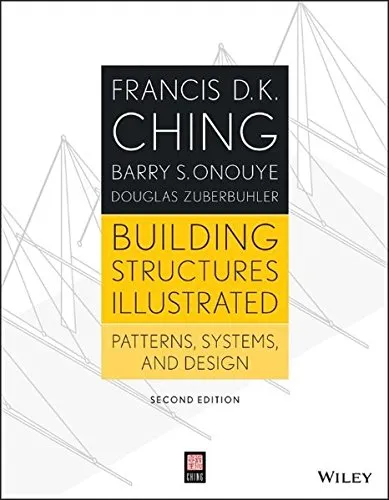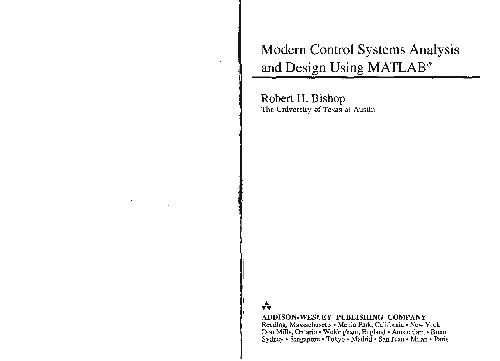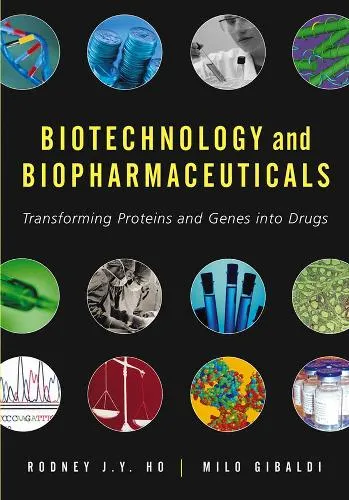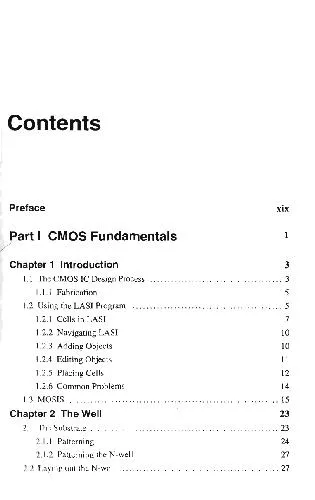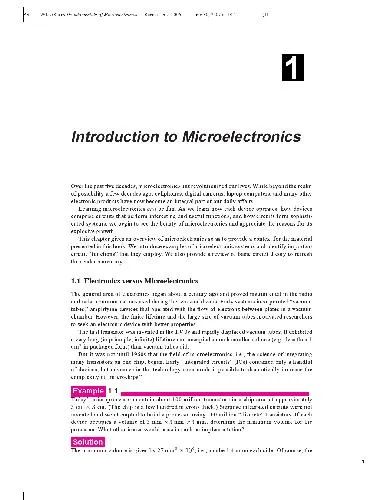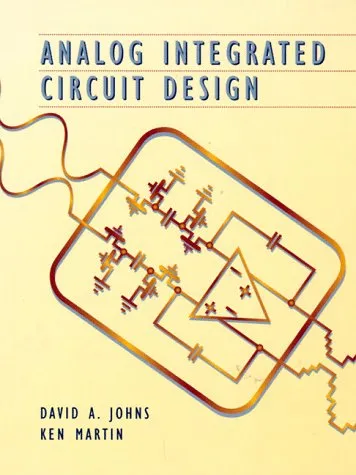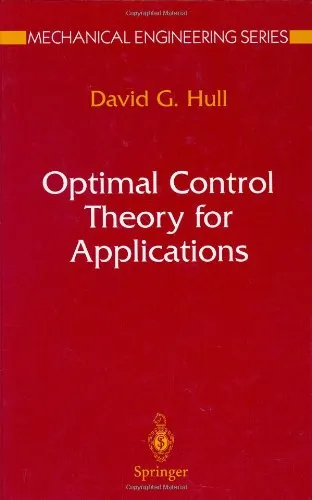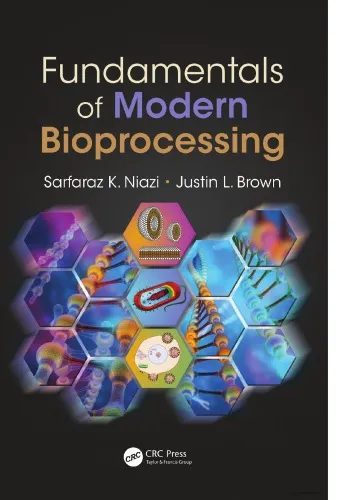Bioprocess Engineering: Basic Concepts
4.5
Reviews from our users

You Can Ask your questions from this book's AI after Login
Each download or ask from book AI costs 2 points. To earn more free points, please visit the Points Guide Page and complete some valuable actions.Related Refrences:
Introduction to "Bioprocess Engineering: Basic Concepts"
"Bioprocess Engineering: Basic Concepts," authored by Michael L. Shuler and Fikret Kargi, is an exemplary textbook that bridges the worlds of biology and engineering. It introduces readers to the fundamental principles of bioprocess engineering, illustrating how biological systems can be translated into industrial processes to produce pharmaceuticals, chemicals, energy, and other biomaterials. Known for its clarity, balance, and interdisciplinary perspective, the book has been a cornerstone for students, educators, and professionals in the fields of biotechnology and bioprocessing.
The third edition of this book offers a unified treatment of the essential concepts and practical applications needed in bioprocess engineering. It simplifies the complexities of biological systems and the associated engineering processes, making them accessible to readers from diverse academic and professional backgrounds. Whether you are just stepping into the field or seeking to deepen your understanding, "Bioprocess Engineering: Basic Concepts" remains an invaluable companion for mastery of this rapidly evolving discipline.
Detailed Summary of the Book
The book starts with the basics, laying a solid foundation for understanding biological and chemical processes. It then introduces the core concepts of thermodynamics, mass balances, and transport phenomena, with a clear focus on their application to biological systems. These principles are consistently woven throughout the text to ensure that readers grasp their relevance and utility in designing and optimizing bioprocess systems.
A significant portion of the text is devoted to the critical area of microbial growth and enzyme kinetics, which forms the backbone of bioprocess engineering. The authors meticulously explain the models that describe microbial and enzymatic behavior in different environments, the impact of culture conditions, and the implications of these models in industrial-scale processes.
As the discussion progresses, the book explores advanced topics such as bioreactor design, downstream processing, sterilization, and scale-up challenges. Newer topics, like metabolic engineering and molecular biology applications, are briefly touched upon to give readers an appreciation of emerging trends. The final chapters bring all these elements together by discussing real-world case studies that help users visualize how basic concepts are implemented in practice.
Key Takeaways
- Learn the essentials of mass and energy balances as they apply to biological systems.
- Understand microbial growth kinetics and enzyme catalysis and their engineering significance.
- Discover the intricacies of bioreactor design and operation for various industrial processes.
- Explore the integration of biology and engineering for process optimization and scale-up.
- Gain insights into downstream processing techniques and product recovery strategies.
- Enhance your problem-solving skills through applied case studies.
- Stay ahead with a glimpse into emerging areas like genetic manipulation and metabolic pathway analysis.
Famous Quotes from the Book
"Bioprocess engineering is not just about understanding biology and mechanical systems separately; it's about their intersection, where new possibilities emerge for industrial innovation."
"The fundamental challenge in bioprocess engineering is to harness the delicate efficiency of biological systems into the robust demands of industrial frameworks."
Why This Book Matters
As the world grapples with challenges such as sustainability, disease eradication, and energy shortages, the role of bioprocess engineering has never been more crucial. This text provides a gateway for understanding and designing systems capable of meeting these challenges by empowering engineers and scientists to develop innovative solutions harnessing biological principles.
"Bioprocess Engineering: Basic Concepts" stands out not just for its excellent pedagogy, but for its ability to demystify complex interdisciplinary ideas, making them accessible to learners at all levels. Its focus on real-world applications ensures that the knowledge gained is immediately relevant, whether you're working in biotechnology, pharmaceuticals, or environmental engineering. It encourages critical thinking, problem-solving, and a mindset geared towards innovation, which are vital for driving progress in today's ever-evolving industrial landscape.
Free Direct Download
You Can Download this book after Login
Accessing books through legal platforms and public libraries not only supports the rights of authors and publishers but also contributes to the sustainability of reading culture. Before downloading, please take a moment to consider these options.
Find this book on other platforms:
WorldCat helps you find books in libraries worldwide.
See ratings, reviews, and discussions on Goodreads.
Find and buy rare or used books on AbeBooks.
1498
بازدید4.5
امتیاز0
نظر98%
رضایتReviews:
4.5
Based on 0 users review
Questions & Answers
Ask questions about this book or help others by answering
No questions yet. Be the first to ask!

